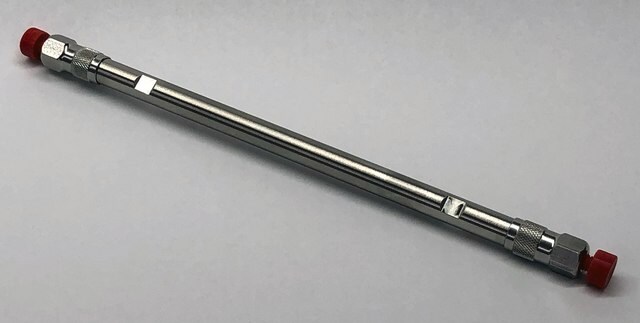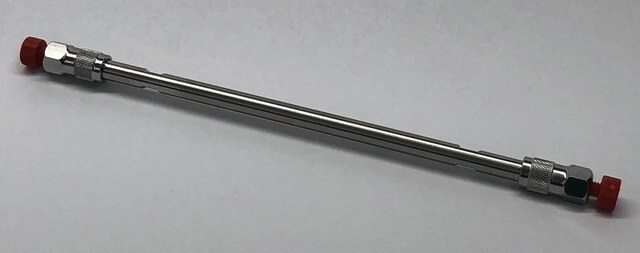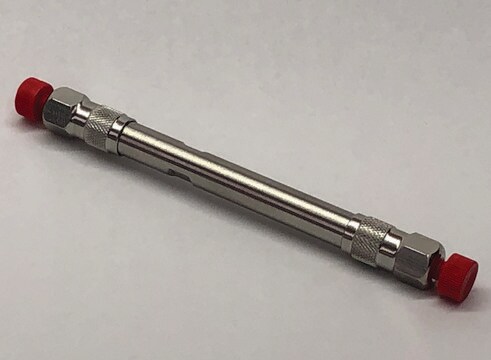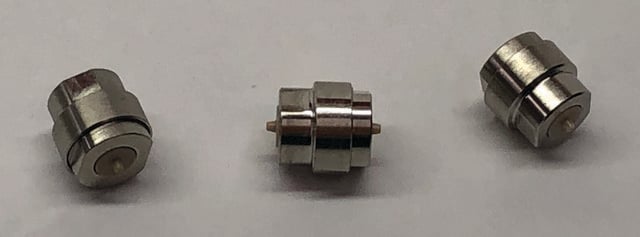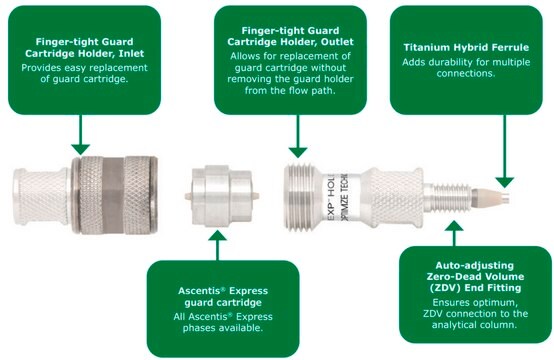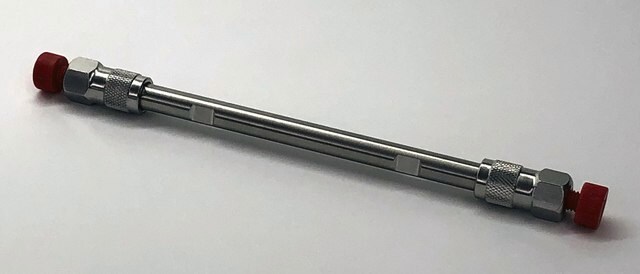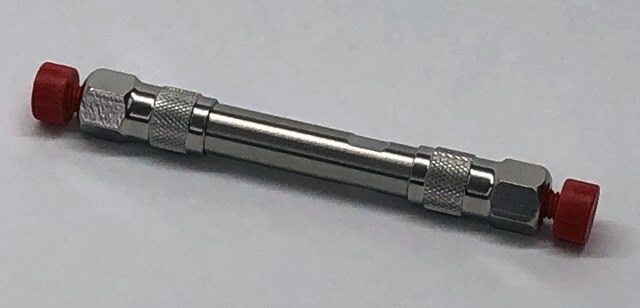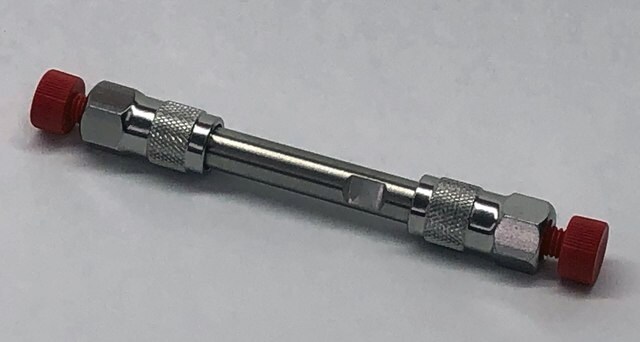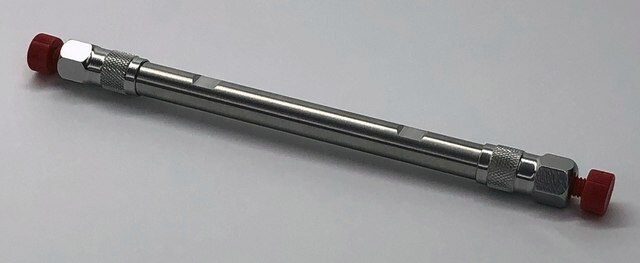53913-U
Ascentis® Express 90 Å RP-Amide (2.7 μm) HPLC Columns
L × I.D. 10 cm × 2.1 mm, HPLC Column
Synonym(s):
Core-shell (SPP) Fused Core polar embedded HPLC column
About This Item
Recommended Products
product name
Ascentis® Express RP-Amide, 2.7 μm HPLC Column, 2.7 μm particle size, L × I.D. 10 cm × 2.1 mm
material
stainless steel column
Agency
suitable for USP L60
product line
Ascentis®
feature
endcapped
manufacturer/tradename
Ascentis®
packaging
1 ea of
parameter
60 °C temp. range
600 bar max. pressure (9000 psi)
technique(s)
HPLC: suitable
LC/MS: suitable
UHPLC-MS: suitable
UHPLC: suitable
L × I.D.
10 cm × 2.1 mm
surface area
135 m2/g
impurities
<5 ppm metals
matrix
Fused-Core® particle platform
superficially porous particle
matrix active group
amide, alkyl phase
particle size
2.7 μm
pore size
90 Å
operating pH range
2-9
application(s)
food and beverages
separation technique
reversed phase
Looking for similar products? Visit Product Comparison Guide
Legal Information
Application
guard cartridge
related product
required but not provided
Storage Class Code
11 - Combustible Solids
WGK
WGK 3
Flash Point(F)
Not applicable
Flash Point(C)
Not applicable
Choose from one of the most recent versions:
Certificates of Analysis (COA)
Don't see the Right Version?
If you require a particular version, you can look up a specific certificate by the Lot or Batch number.
Already Own This Product?
Find documentation for the products that you have recently purchased in the Document Library.
Customers Also Viewed
Articles
A significantly improved HPLC-fluorescence method for DMB-NANA and -NGNA, and application of this method to compare 2 candidate biosimilar therapeutic proteins to their respective RMs.
Pistachios contain approximately 45% fat, which can result in a significant amount of coextracted matrix in the acetonitrile extract generated using the QuEChERS procedure. A zirconia based adsorbent significantly reduces coextracted matrix prior to LC-MS or GC-MS.
Sigma-Aldrich.com presents an article about innovative particle technology and RP-Amide bonding chemistry provide the benefits of speed, resolution, selectivity, aqueous stability, and improved peak shape for bases.
A large variety of cannabinoid drug standards, along with an HPLC method with the Supelco Ascentis® Express RP-Amide column, are presented in this article.
Protocols
Separation of null
THC solution, 1.0 mg/mL in methanol, ampule of 1 mL, certified reference material; Cannabidiolic acid solution, 1.0 mg/mL in acetonitrile, ampule of 1 mL, certified reference material; Cannabichromene solution, 1.0 mg/mL in methanol, ampule of 1 mL, certified reference material; Cannabigerolic acid solution, 1.0 mg/mL in acetonitrile, ampule of 1 mL, certified reference material; Δ9-Tetrahydrocannabinolic acid A (THCA-A)
THC solution, 1.0 mg/mL in methanol, ampule of 1 mL, certified reference material; Cannabidiolic acid solution, 1.0 mg/mL in acetonitrile, ampule of 1 mL, certified reference material; Cannabichromene solution, 1.0 mg/mL in methanol, ampule of 1 mL, certified reference material; Cannabigerolic acid solution, 1.0 mg/mL in acetonitrile, ampule of 1 mL, certified reference material; Δ9-Tetrahydrocannabinolic acid A (THCA-A)
Related Content
QuEChERS is a ‘Quick, Easy, Cheap, Effective, Rugged and Safe’ sample cleanup method used to prepare food and agricultural samples for pesticides analysis. QuEChERS is based on the Solid Phase Extraction (SPE) technique of sample preparation.
QuEChERS method simplifies sample cleanup for pesticides analysis in food and agricultural samples.
Chromatograms
application for HPLCapplication for HPLCapplication for HPLCapplication for HPLCShow MoreOur team of scientists has experience in all areas of research including Life Science, Material Science, Chemical Synthesis, Chromatography, Analytical and many others.
Contact Technical Service